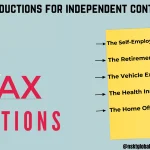
A well-defined marketing plan can turn an idea into reality. It should include your target audience, including their hot buttons, priorities, and demographics. It should also include your budget and desired outcomes. To create an effective plan, you need to determine the type of products or services you want to offer. Then, figure out what you can do to reach those people. For example, if you’re targeting women, you might focus on creating content that appeals to women, or a male audience.
Pricing is another important element of an effective marketing plan. Your pricing should reflect your position in your marketplace. If your target audience is consumers, you should charge a price that makes your product or service stand out among the competition. Promotion involves reaching out directly to consumers. It may include various forms of advertising, SEO, SEM, or sponsorships. A good marketing plan will include these methods to boost sales. Here’s how you can use each of them to your advantage.
Having a marketing plan is crucial for your company’s success. It provides insight into your company’s marketing and determines whether it’s working. Marketing plans don’t always produce immediate results, but they do show you what your company should be doing and how to differentiate yourself from your competition. By building a marketing strategy, you’ll discover opportunities to sell more of your product or service. Your marketing plan should align with your business mission and vision, your target audience, and your brand identity.
Your marketing plan should also address the costs involved in different stages of marketing your product. You need to break down costs associated with each step of the marketing process, from television ads to radio advertisements. By having a well-defined marketing plan, you can better estimate how much money you need to market your products. It is also essential to consider what strategies have worked well in the past for your business. The elements of an effective marketing plan should also include a strategic advertising campaign.
A marketing plan should include measurable goals. A good marketing plan should include a timeline for all marketing activities, as well as steps to achieve the set goals. It should also include a budget for the activities. A good plan should be updated regularly, from a few months to three years. If you need to adjust your marketing strategy for a longer time period, it’s best to update your plan every year. If your business is growing rapidly, you’ll want to update it periodically.
A marketing plan should also identify your products or services and the best ways to deliver the message to your target audience. Marketing plans should be SMART (smart, manageable, realistic, and time-based) and should match your sales strategy. You should also develop a timeline, a budget, and an advertising plan for each phase. The timeline should include all planned promotions for the year and the costs involved. A month-long promotion, for example, could include two or three high-quality posts a week.








